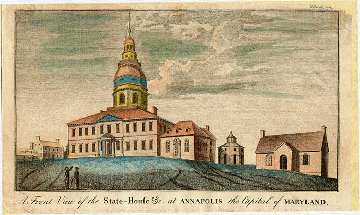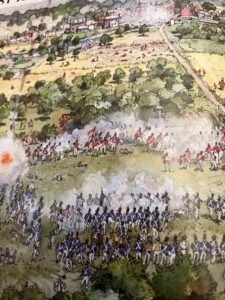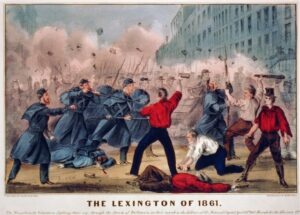The final chapter of the Revolutionary War occurs in the Maryland Statehouse. After the great 1781 victory at Yorktown, England agrees to negotiate a peace settlement. A patient and skilled American team led by Benjamin Franklin spends two years hammering out a deal with the reluctant British. In September, 1783, the Treaty of Paris ending hostilities is headed for American ratification.
Maryland invites a practically powerless Congress of the Confederation to Annapolis and in November 1783, state delegations begin to show up. Three weeks after George Washington resigns his commission at the Statehouse, Congress meets on January 14, cobbles together a quorum and ratifies the Treaty of Paris, making our new country truly independent. Ratification Day makes Annapolis the first U.S. Capital.
The Maryland Statehouse is the oldest statehouse in the country in continuous use.






